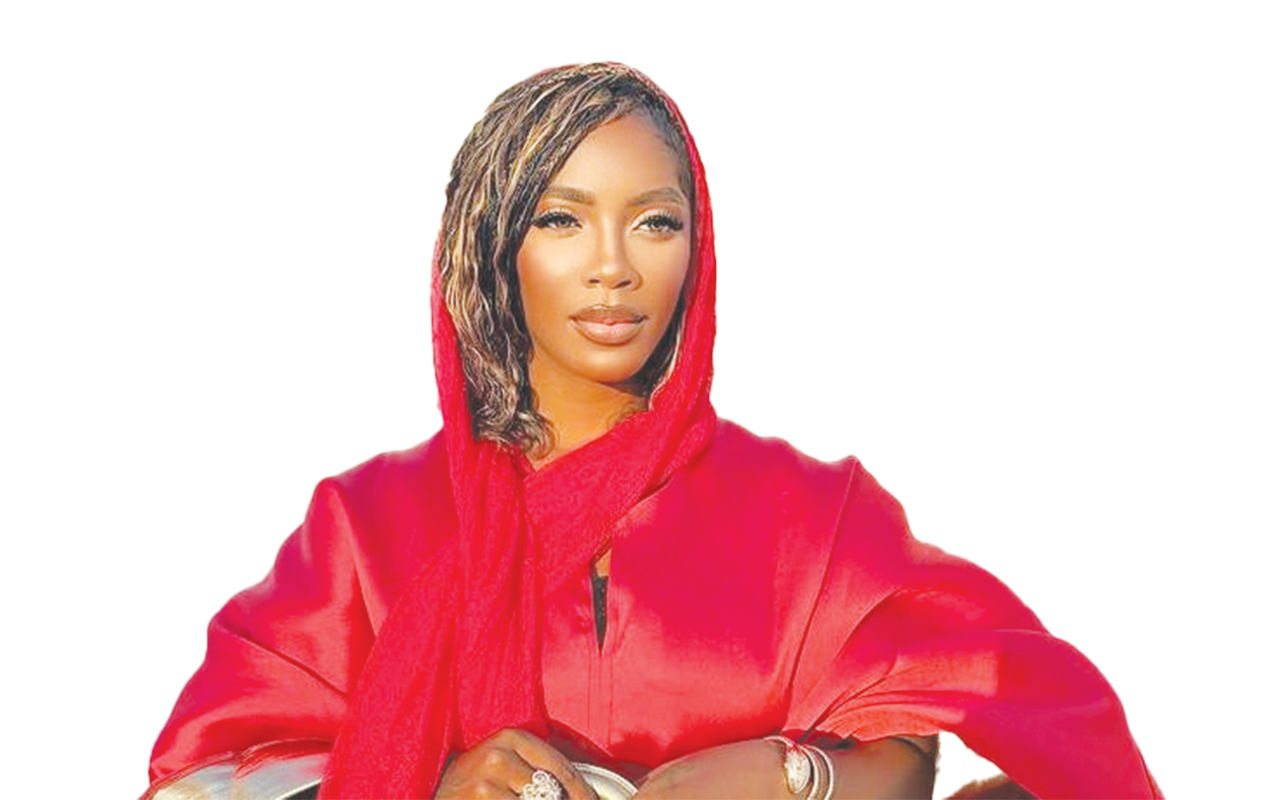
“Dayo Duyile came from the Nigerian Tribune. Anytime a senior reporter was not at hand, Dayo Duyile was always our answer. Dayo Duyile will go very far in his chosen profession.”
That was the testimonial from Alhaji Lateef Kayode Jakande, then Managing Director of the Nigerian Tribune, about Chief Dayo Duyile in 1963 in appreciation of his service at the newspaper company after a stint of two and a half years as a reporter. He had gotten a new appointment as a reporter at the Daily Times in Lagos.
Before joining the employment of the Tribune in the late 1960, Duyile had had a brief stay as a trainee-reporter at the Southern Nigerian Defender, one of Dr. Nnamdi Azikiwe’s newspapers. “I was just a reporter-in-training. They were training me in crime reporting, which involved looking at Police bulletins at Iyaganku Police Station in Ibadan, and returning to office to do the report… there was nothing spectacular about working at Southern Defender.
But, when I got to the Nigerian Tribune as a Crime Reporter, I was able to investigate crimes such as murder, man slaughter, burglary and I was having very good reports for the Nigerian Tribune, some of the reports appeared on the front page… that was how I started, in fact, seeing my byline on the front page further spurred me into more action as I started looking for exclusive stories for the newspaper,” Duyile reminisced with nostalgia recently, in Lagos, at the presentation of the fifth edition of his seminal book, Makers of Nigerian Press.
For Duyile, who clocked 77 on October 10, 2019, Jakande’s prophetic testimonial has not only come to pass, its manifestation is multifaceted. In the nearly six decades of his professional life, Duyile has had a flourishing career combining the academic, business and professional fields in journalism and public relations.
In 1963, he joined the editorial department of Daily Times and three years after, he was at the Western Nigeria Television (WNTV-WNBS), Ibadan, as a reporter/sub-editor from 1966 to 1975. He covered many sensational court cases and tribunals for Daily Times and the television station including Chief Obafemi Awolowo’s treason trial in 1964-65. He would later work as Deputy Editor in DRUM Magazine, Lagos and later from 1976 -1979, Duyile was editor of Daily Sketch Newspapers in Ibadan and rose to the position of Acting General Manager of the newspaper company.
He worked as Training Manager of Concord Press Limited, publisher of National and Sunday Concord Newspapers, 1980-1982. He was Director, Nigerian Institute of Journalism (NIJ), Ogba, Ikeja, Lagos from 1989 to 1995, having served as Assistant Director from 1986-89.
His academic career started fully in 2006 and till date, he has etched indelible marks on the faculties of four Nigerian universities: Adekunle Ajasin University, Akungba-Akoko, Ondo State (as Head of the Department of Mass Communication); Joseph Ayo Babalola University, Ikeji-Arakeji, Osun State (also as a senior lecturer and HoD); and Wesley University of Science and Technology, Ondo. He is currently a senior lecturer in Journalism and Mass Communication at Elizade University, Ilara-Mokin, Ondo State.
But how did journalism hook the native of Ondo town?
He narrates, “When I was at St Luke’s Secondary Modern School at Okitipupa, Ondo State in the 1950s, my teacher used to tell me I was good in writing essays, especially descriptive and expository essays. He said that was a reminiscent of a good journalist! Then, I didn’t know what journalism was. But when I grew up and I continued to write according to my conscience, writing for college newspapers and when I wrote one letter to the Editor of Daily Times in 1958, it was published. In the letter, I was complaining about the treatment meted to some people in my locality in Ondo area of Ondo State. I didn’t even see it, but one of my colleagues who went on holiday in his home town, Warri, saw it, because his father used to read Daily Times and brought a copy to me! ‘Look at your story. You wrote this and they published it,’ he announced to me on his return to school.
That ignited my interest. Plus my teacher’s comment that I was good in writing essay, I eventually tried to see if I could get a job in any of the newspapers around then. When we finished our General Certificate of Education Classes in Ibadan in 1959, my other colleagues got job in the Post Office, but I insisted I won’t work in the Post Office, so, I was looking for journalism job until I got to the Southern Nigeria Defender in 1960 and I was employed as a trainee-reporter. Although I was being paid what could be regarded as peanut (5 Pounds) compared to what my other colleagues who were working in the Post Office were getting – 14 pounds, I still preferred the journalism job, and after about 9 months, I got another job in the Nigerian Tribune and it was Alhaji Lateef Jakande who first employed me in Ibadan in the late 1960.”
His desire to work for a national newspaper motivated his departure from the Nigerian Tribune mid-1963 as he grabbed the opportunity to work for a paper which was being read all over the country, which the Daily Times represented at that time. “I left Tribune after two and a half years and joined the Daily Times as a reporter,” he said.
How easier was it then to cross from one newspaper to another? “I wrote to the Editor that I would like to join the editorial team of the Daily Times and I got a letter of invitation for an interview. Mr. Peter Enahoro, who was then the Editor of Sunday Times, chaired the interview session. The result came out immediately that I was appointable, but I was given one month to clear myself with the Nigerian Tribune. My Editor at that time, Mr. Akin Emiola who is now a professor of law at the University of Benin wasn’t happy I was leaving the Tribune. He said, ‘Why are you leaving?’ I replied I was going to Lagos to work for the Daily Times. He said I could be transferred to Lagos as the Tribune Correspondent! But I had already made up my mind, more so, when I had secured the job already.”
But the allure of Ibadan would beckon at Duyile again as he returned to another regional establishment, the Western Nigeria Television (WNTV)/Western Nigeria Broadcasting Service (WNBS) as Reporter/Sub-Editor. He explained,
“Although WNTV was regional, but it was a broadcast journalism different entirely from the print journalism, more so, when I wanted to have an idea of what journalism was on television and on radio. It was WNBS/WNTV, radio and television services combined, so, to be a reporter on the two stations became another advantage for me to add to my experience as a journalist.
“I returned to Ibadan because I wanted to be part of WNBS/WNTV and luckily, Mr. Sam Ayo Von was the Head of News, he interviewed me and saw Jakande’s testimonial, which I regarded, till today, as the ‘real’ certificate that was even better than the college certificate I had then. At that time, I was going about with my GCE certificate, I had not gone to the university. I regarded the testimonial as a very good certificate! Each time I attended any media interview for a job, I placed the testimonial on top of my certificate. It was like a magic certificate! I noticed that after the oral interview while screening my papers, they (members of the interview panel) always looked at the testimonial differently… than the GCE certificate. There was no interview I attended that I failed! I think that part of the success that I scored in all the interview sessions could be traced to the testimonial!”
While Duyile has continued to acknowledge the impact of Jakande’s testimonial in his life as an accomplished journalist, he cherished, most, the part that says, ‘Anytime a senior reporter was not at hand, Dayo Duyile was always our answer.’ He said, “Mind you, I was not a senior reporter at that time! In fact, I was less than three years old in the profession. I memorized the testimonial since then. I used to tell my children, ‘anything you do, do it well. Because there lies your success! And when you are climbing up, remember to protect your own self integrity, your professionalism, and your quality of service. These were things Alhaji Jakande used to tell us in those days as reporters. He always admonished us on integrity, honesty and hard work.”
He relished the fond memory of the coverage of the trial of Chief Obafemi Awolowo for Daily Times in 1964/65. “The most striking of my assignments at the Daily Times was the trial of Chief Obafemi Awolowo who was charged with treasonable felony and the Editor then said, ‘Dayo you have experience in court reporting, so, you and Segun Osoba should go and do that.’ I would go in the morning to cover the trial from 9.00a.m. when the court opened till 12.00 noon and Osoba would take over till 4.00p.m. The logic was for my report to go with the first edition which would be circulated in the far East and far North, while Osoba’s report joined with my own would now circulate in the South and Western Region… it was a template developed by the Daily Times in publishing and circulating newspaper. The coverage of the trial remains a great assignment that I ever covered in the Daily Times apart from crime stories.”
Specifically, he said his employment as Deputy Editor of Drum Magazine was influenced by the testimonial. “Drum Magazine was a South African international newspaper. They were publishing four editions: South African edition; East Africa; Ghana edition and Nigeria edition. My Editor was Olu Adetule who was also an accomplished journalist of that time, I was his deputy for about four years before I now got a new job as editor of the Daily Sketch, again, in Ibadan. I was criss-crossing between Ibadan and Lagos.”
Indeed, his rise to become the Editor of Daily Sketch had a collection with his educational qualification as a first degree holder. “All along, I had not been a university graduate. I was still holding my GCE Advance level certificate. It was a qualification for me to go to the university which I did not go because I was consistently working in the newsroom, and I was enjoying it… I thought the university education wasn’t necessary. But when Alhaji Jose said that every journalist in the Daily Times should have either university or professional education apart from having your school certificate and GCE Advance, I had to go to university of Lagos to do my Diploma in Mass Communication in 1970. Thereafter, I was encouraged to go for the first degree and I did.
“But as soon as I finished the first degree programme in 1976, the Daily Sketch advertised for the position of Editor with an educational requirement of first degree plus at least, six to seven years newsroom experience. I had that, so, I applied. For that reason, I had to leave the Drum magazine despite the payment of good salary and other perks of office such as official car, house rent and others. But the desire to be an editor of a daily newspaper lured me again to Ibadan. Besides, I don’t normally stay in one place for too long, I was always on the move. So, I moved to the Daily Sketch. A total of 16 candidates contested for the post of the editorship, I was surprised when I got the letter that I was successful, that I should come and resume as the editor! That was how I went to Daily Sketch as Editor in 1976. I was there till 1978 when I was promoted as the General Manager.”
But the honeymoon as the Acting General Manager was shortlive. “I left the Daily Sketch in 1979 when the late Governor Bola Ige came into power in Oyo State and the government decided to fill the vacancy in the General Managership position. An interview session was arranged for me and another contestant , who was incidentally Chief Segun Osoba who was coming from Herald in Ilorin as General Manager. Osoba had finished his secondment from the Daily Times to Herald and at the time, he was returning to the Daily Times in Lagos (he was on loan from the Daily Times to Herald), the Daily Sketch advert for recruitment of a General Manger was out and Osoba applied. We did the interview. The result was that I was appointable, but Chief Osoba was more appointable, so, the Board took Osoba and I had to leave.”
Duyile’s departure from the Sketch however, coincided with the plan by the late MKO Abiola to establish Concord Press of Nigeria. “I was invited to be one of the pioneer staff. Other were Dele Giwa, Doyin Abiola (then Doyin Aboaba), Henry Odukomaiya… For three months, we were working behind the scene. Initially, Abiola said I should be the Editor of the newspaper, but I said no! I had just edited the Daily Sketch in Ibadan and later served as the Acting General Manager, why should I edit a new newspaper, look for somebody else! As a result, Doyin was brought to edit it, then I became the training and manpower development manager, on contract as I insisted I wanted to be on contract. My duty involved organising training for those who had been recruited in the newsroom. Because we wanted the National Concord to look different from other newspapers, we had to train the new recruits in all cadets in the house style, presentation and so on. I was also organizing seminars bringing academics and professionals to facilitate some of the trainings for the staff. I spent two years and the contract was not renewed.
“I left the Concord Press in 1982 to establish a public relations company which still exists till today, Gong Communications Limited. I started with six clients in Lagos, Ibadan and Abuja. I set up the company to practicalise the knowledge of Public Relations and Advertising I received at the university during my undergraduate programme. Really, I started practicing PR especially when I was in the university doing some little public relations consultancy here and there. I later in 1982 formalised it by establishing Gong Communications Limited.”
Duyile would later berth at the Nigerian Institute of Journalism (NIJ) first as the assistant director in 1986 and later, the Director. He served two terms of three years each. He bowed out in 1995. In 1996, he went on a sabbatical to the University of The West Indies in Kingston, Jamaica as a visiting scholar for two years. He had had his Master’s degree also at the University of Lagos in 1990. He returned from Jamaica in 1998 to join politics which culminated in the inauguration of new civilian government on May 29, 1999. He was working with the late Governor Adefarati of Ondo State in a private capacity as an adviser till 2003.
Surprisingly, Duyile combined his work as a journalist and media manager with writing of books which later became instructional materials at virtually all the institutions of higher learning offering journalism and mass communication including the Nigerian Institute of Journalism. Today, he has to his credits popular publications such as Media and Mass Communication in Nigeria (1979); Makers of Nigerian Press (1986); Manual for African Journalists (1990); Ethics of Journalism in Africa; Political and Parliamentary Reporting; as well as Public Relations for West Africa. As a result, he decided to go into academics fully since 2006 and he had a stint at the Department of Mass Communication, Adekunle Ajasin University, Akungba-Akoko, Ondo State where he was Head of Department. He also worked as a Senior Lecturer and HoD at Joseph Ayo Babalola University, Ikeji-Arakeji, Osun State. He is currently a senior lecturer in Journalism and Mass Communication at Elizade University, Ilara-Mokin, Ondo State.
Even at 77, Duyile is now pursuing his Ph.D degree at the University of Lagos. But what is in it for him? “The Ph.D issue has been a recurrent decimal for me all along. I had wanted to take my Ph.D since when I was at the NIJ and I got a scholarship from the Michigan State University to do it in America. The scholarship came with a teaching assistantship which was very attractive. But Alhaji Jakande won’t let me go. I had then introduced a new programme at the NIJ, evening programme for Adults in Journalism, Public Relations, Advertising and Marketing Communication, and he then said, ‘who is going to take care of all these?’ He went authoritative, ‘you can’t leave us.’ I didn’t like it, but no option at that point than to obey him. So, I missed that opportunity. Also, when I went to Jamaica during my sabbatical as a visiting scholar, I wanted to do the Ph.D there, but because it would take me three years, and I was to spend only two years which I didn’t prepare to extend, I couldn’t utilize the opportunity. Even, UNILAG gave me admission for Ph.D long time ago, I couldn’t take it. I even started online Ph.D course with the American International University in Washington, I abandoned it. So, now, I have decided to do it, not because I wanted to use it to look for a job, but to have it as part of my qualification and to seek more knowledge especially in the area of research, so that I can be a good researcher. If that is the only thing the Ph.D degree could fetch me, it is enough for me!”
He has three-in-one piece of advice for young journalists. “They need to go back to school, not really for formal education, but seminars and workshops through which new ways of doing the job efficiently could be procured. They have to continually improve upon their quality of delivery as well as their skills. Two, we should think more about ethics, so that our integrity will remain intact. The good knowledge of ethics and practice will reduce the rate at which commercialization is taking over the profession. Three: if you desire to take journalism as your career for life, then, stay by it! Do not play politics with it! Otherwise, the profession becomes adulterated and believability of your output, content wise, is gone forever.”
He commended the quality and size of guests at the presentation of the Makers of Nigerian Press (5th edition) on October 22, 2019, he said: “I am impressive that most of the invited guests came to grace the occasion. I am happy to see my old colleagues, some of the veterans of the Nigerian media who gladly came to look at what was happening there and how the book looked like. I am sure they would enjoy good reading, when they get back home. October 22, 2019 would remain a very historic day in my career launching this book on media history of Nigeria. The presence of people like Alhaji Lateef Jakande, Chief Segun Osoba, Pa Michael Ade Ojo who is not even a journalist, but a successful Nigerian businessman and top journalists from the media and scholars from the universities gladdens me more than whatever gain I want to have from the launch.”






